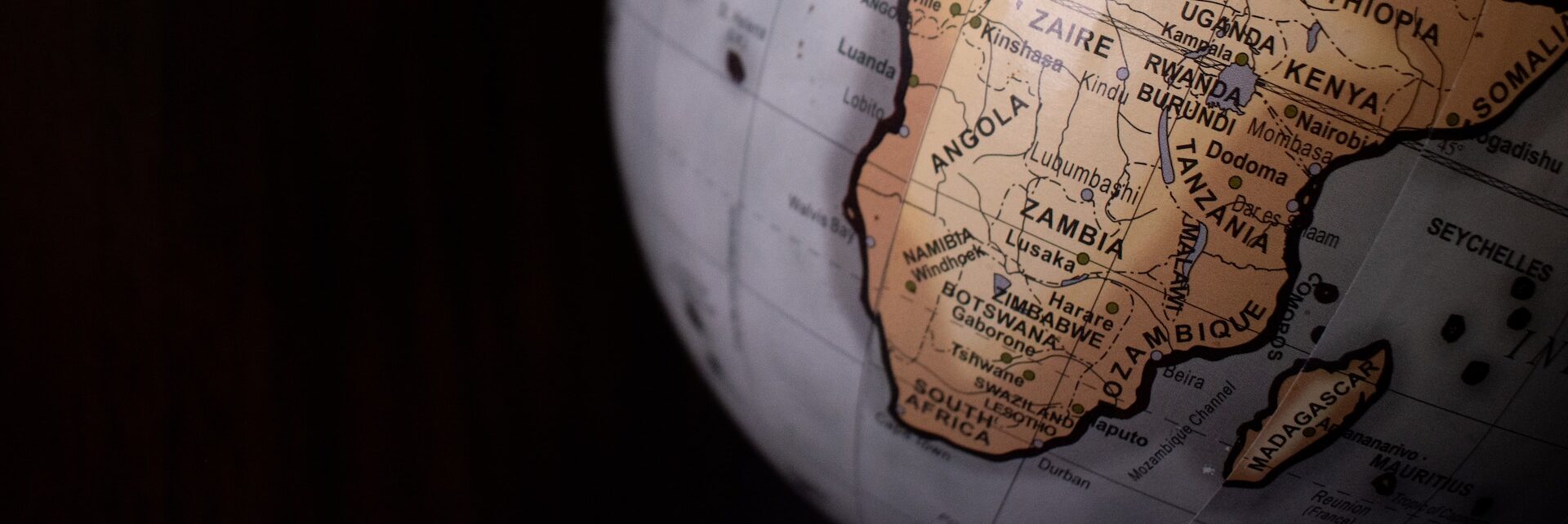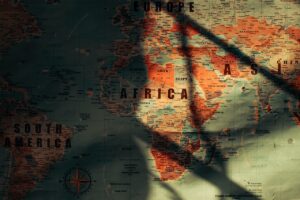Read the policy briefing “Energy in Africa: what relations between Italy and Mozambique?”
Italy and Africa
The revival of relations between Italy and African countries, among them Mozambique, needs to be contextualized within a framework of renewed Italian interest in the African continent. In this framework, the Meloni government is actively working on a new strategic project for Africa, known as “Mattei Plan”, which aims at establishing equal and mutually beneficial relations with African partners, in a “non-predatory” context.
Against this backdrop, Mozambique represents an extremely relevant partner for Rome, drawing on solid relations at both a governmental and civil society level.
The energy sector plays a crucial role in Italy’s approach aimed at aligning domestic objectives with the economic development of African countries. In the wake of recent discoveries of huge gas fields in Mozambique, which now ranks as Africa’s third country for largest gas reserves, the Italian relation with Maputo has mainly focused on the development of this sector.
Gas for development?
So far, the history of gas in Mozambique is a history of failure. The country qualifies as a perfect example of the so-called “resource curse”, the phenomenon whereby the discovery of natural resources, instead of generating wealth and development, leads to increasing debt, corruption and instability – often before production even starts. This is indeed where the country stands today: the discovery of gas has not spurred economic growth and industrialization, public debt has tripled until reaching 91% in 2021, poverty and inequality rates have increased and a conflict in the Northern, gas-rich province of Cabo Delgado quickly escalated. The related humanitarian crisis has led to the displacement of over 3% of the population, claiming over 4500 lives and worsening the already severe food insecurity situation.
While the conflict in the North of the country was not directly caused by gas exploitation, the launch of gas projects did increase tensions in a context which was already extremely fragile, and where pre-existing socioeconomic and political claims were exacerbated by the dynamics associated with unequal access to opportunities arising from gas exploitation.
Gas projects in Mozambique constitute a risky gamble for the country’s finances, namely given the extreme volatility of gas prices in the global markets. The perpetual state of indebtedness and uncertainty about future revenues prevents the development of other economic sectors, thus jeopardising a necessary economic diversification of the national economy. Hence, Mozambique has been caught into an inescapable vicious circle – especially as elites’ interests grow increasingly tied to the gas economy.
Furthermore, the architecture of contracts favours international gas companies as the primary beneficiary of gas revenues, while revenues for the local government will only materialise 15 years after the launch of the projects and 10 years after the start of the first gas flows. Such an arrangement is clearly unbalanced, as it offloads the risks of the gas industry on the country system. Besides, projections over future government revenues were outlined with reference to economic scenarios where gas prices would gradually increase over time. This leaves Mozambique particularly exposed to falling gas prices, as per the IEA’s net-zero scenario: in the framework of global decarbonisation efforts, gas demand, LNG trade and consequently gas prices are expected to decline by the end of this decade already. In contrast, Mozambique’s expected revenues from gas projects assume much higher gas price levels until 2050.
While both national and international attention has been focusing on gas development in Mozambique, the country is one of the most vulnerable to climate change impacts at a global level. Mozambique is already experiencing extreme weather phenomena, with devastating cyclones that in the past few years have claimed lives, displaced people and contributed to the spread of epidemics such as cholera. According to World Bank estimates, Mozambique is expected to spend USD 35.8 billion on emission reduction measures by 2030, equivalent to 30% of its GDP. Although this might look like a huge amount of money, the cost of inaction would be much higher.
The renewable model
Given the evident failure of an anachronistic economic development model centered on gas, which has proved to be detrimental from a socioeconomic, political, security and environmental point of view, a development model based on renewable energies might offer an alternative closer to the needs of the country and its population, far from the “resource curse” that has thrown Mozambique into a dangerous spiral of crisis.
After all, Mozambique can count on a huge potential for renewable energy, especially in hydro and solar power. These could generate significant social, political, and environmental benefits. Indeed, decentralized energy systems favor clean source integration through on- and off-grid electricity infrastructure, lead to an increase in local welfare, to improved electricity access in rural areas and to the creation of new jobs, thus directly benefiting local communities and their development. So far, however, renewable energy has only received a fraction of the attention and funding devoted to gas projects. The total international support for renewable energy projects in Mozambique is USD 230 million (2021), which amounts to only one sixth of public funding volume allocated to Mozambique LNG project alone.
A new approach for a sustainable partnership with Mozambique
The case of Mozambique shows how shaping bilateral relations around fossil fuels exploitation is an anachronistic approach that does not guarantee fairness and sustainability. In fact, such an approach proves counterproductive both for Mozambique itself and for the promotion of stability and security on the African continent.
Pursuing investments in the gas sector exposes Italy and Europe to a significant range of social, economic, financial and security risks. Furthermore, Mozambican gas would have no relevant impact on Italy and Europe’s energy security, neither in the short nor in the long run, as the necessary infrastructure and alternative technologies (primarily renewables and energy efficiency) to replace Russian gas flows is already available. Additionally, in the medium-term LNG plants built by Western countries (often with public guarantees such as in Mozambique), will benefit gas growing markets like India and China.
Therefore, there is room and opportunity for Italy to reconsider the assumptions and strategy of its approach to Maputo (and beyond), by taking the following directions:
- Commit to not supporting new gas exploration and production, both at a political level and through public finance, as these would extend well beyond the second half of the century.
- Review public finance incentives and use bilateral mechanisms (such as the Italian Climate Fund) and multilateral cooperation frameworks to unlock Mozambique’s high potential for renewable energy and electricity infrastructure.
- Activate economic and industrial diplomacy to identify zero-emission projects, that can involve new and different private actors and mobilise private finance.
- Encourage the development of alternative economic sectors to fossil fuels that can foster sustainable and inclusive economic growth for the country and its people:
- Mozambique is endowed with vast deposits of critical minerals such as lithium, graphite, and copper.
- Climate-smart agriculture combines the development of the agricultural sector with the enhancement of food security and increasing resilience to climate change, which is causing huge losses in agricultural output.
- With its 2700 km coastline, fisheries constitute a mostly untapped sector with largely unexploited potential.
- In view of the country’s naturalistic credentials, Mozambique has enormous potential in tourism.
- The Italian government should increase efforts to support the conservation of Mozambique’s rich biodiversity, soils and forests, which create long-term value, resilience and new jobs.
- Prioritise the support to effective adaptation policies and projects that will prevent and reduce the future damage and costs of climate change in Mozambique, given the country’s high exposure to the impacts of global warming.
Capitalise on Italy’s increasing relevance on the African continent and on the strength of the Rome-Maputo relationship to advocate for Europe’s “integrated approach” to the crisis in Mozambique to include the multidimensional consequences and dysfunctions associated with gas exploitation, thus emphasising the development of alternative sectors as an important pillar of the strategy of crisis management in the country.
Read the policy briefing “Energy in Africa: what relations between Italy and Mozambique?”
Photo by James Wiseman







